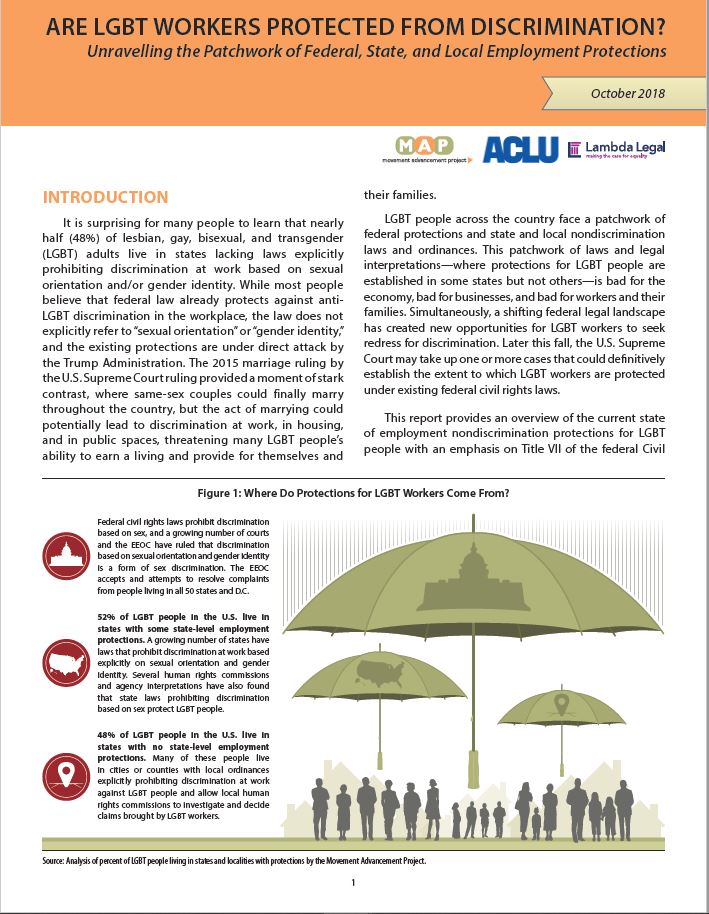The Bottom Line
A new brief from MAP, the ACLU and Lambda Legal, Are LGBT Workers Protected from Discrimination? Unravelling the Patchwork of Federal, State, and Local Employment Protections, examines the existing federal, state and local laws and court rulings that offer protections to LGBT workers as well as the gaps that leave workers vulnerable to discrimination because case law or legislation isn’t clear or explicit.
Are LGBT Workers Protected from Discrimination? Unravelling the Patchwork of Federal, State, and Local Employment ProtectionsDownload
Recommended citation:
Movement Advancement Project, The American Civil Liberties Union, and Lambda Legal. October 2018.
Are LGBT Workers Protected from Discrimination? Unravelling the Patchwork of Federal, State, and Local Employment Protections.
www.lgbtmap.org/employment-protections-landscape-report (date of access).


